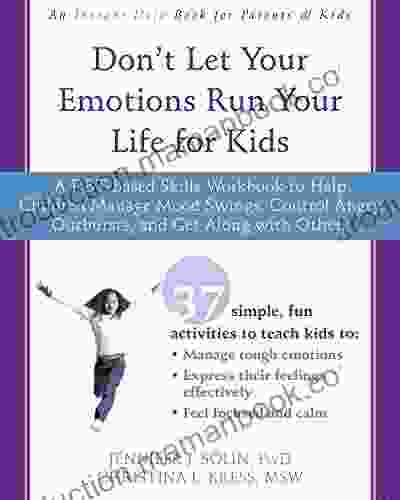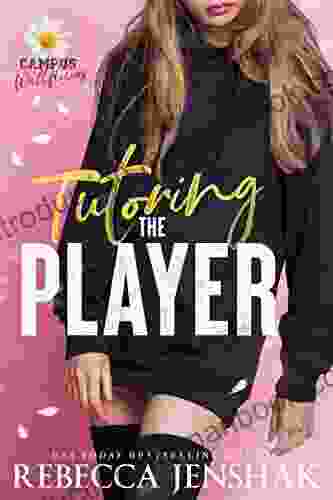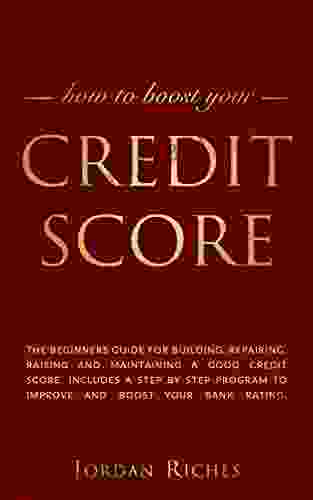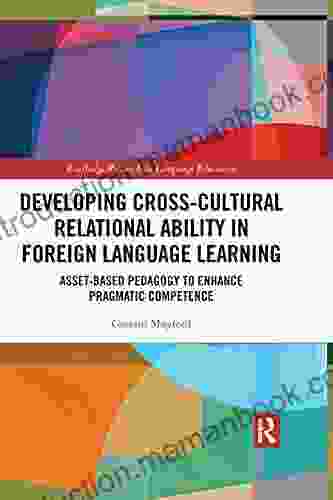Developing Cross-Cultural Relational Ability in Foreign Language Learning

5 out of 5
| Language | : | English |
| File size | : | 6109 KB |
| Screen Reader | : | Supported |
| Print length | : | 174 pages |
In the tapestry of human communication, language is not merely a system of words. It is a reflection of culture, a window into the soul of a society. To truly master a foreign language is to not just understand its vocabulary and grammar, but to also embrace the cultural values, beliefs, and behaviors that give it life. This is where cross-cultural relational ability comes into play.
Cross-cultural relational ability refers to the capacity to establish and maintain meaningful relationships with people from different cultural backgrounds. It involves developing cultural competence, cultural sensitivity, empathy, perspective-taking, adaptability, and effective communication strategies. These qualities are crucial for navigating the complexities of intercultural communication and fostering genuine human connections.
Why is Cross-Cultural Relational Ability Important?
In a world increasingly interconnected by technology and globalization, cross-cultural relational ability has become more essential than ever before. Here are some compelling reasons why:
- Enhanced Communication Skills: By understanding cultural nuances and perspectives, you can communicate more effectively with people from other cultures. This improves not just linguistic fluency but also comprehension and rapport.
- Increased Cultural Awareness: Interacting with people from different cultures broadens your horizons, challenges your assumptions, and deepens your understanding of the world. It fosters cultural appreciation and empathy.
- Improved Problem-Solving: Cultural differences can sometimes lead to misunderstandings and conflict. Cross-cultural relational ability empowers you to recognize and address these challenges constructively, finding collaborative solutions that respect both parties.
- Enhanced Career Prospects: In a globalized job market, employers value employees who can effectively communicate and collaborate across cultural boundaries. Cross-cultural relational ability gives you a competitive edge.
- Personal Growth and Fulfillment: Building relationships with people from different cultures enriches your life, expands your perspectives, and fosters personal growth and fulfillment.
Components of Cross-Cultural Relational Ability
Cross-cultural relational ability is a multifaceted construct that encompasses several key components:
- Cultural Competence: The ability to understand, appreciate, and adapt to different cultural values, beliefs, and practices.
- Cultural Sensitivity: The awareness of and respect for cultural differences, including the ability to recognize and avoid behaviors that may be offensive or disrespectful.
- Empathy: The capacity to understand and share the feelings and perspectives of others, even if they differ from your own.
- Perspective-Taking: The ability to see situations from multiple perspectives, including those of people from different cultural backgrounds.
- Adaptability: The flexibility to adjust your communication style and behavior to suit different cultural contexts.
- Effective Communication Strategies: The ability to use verbal and non-verbal communication strategies that are appropriate and effective in different cultural contexts.
Strategies for Developing Cross-Cultural Relational Ability
Developing cross-cultural relational ability is an ongoing journey. However, there are several practical strategies that can help you enhance your skills:
- Immerse Yourself: The most effective way to develop cross-cultural relational ability is through direct immersion in different cultures. This can involve living abroad, traveling, or interacting with people from different backgrounds in your daily life.
- Study Culture: Read books, watch movies, and engage in online research to gain a deeper understanding of the cultural values, beliefs, and practices of different societies.
- Practice Cross-Cultural Communication: The more you practice communicating with people from different cultures, the more proficient you will become. Join cultural exchange programs, attend international events, or simply strike up conversations with people from diverse backgrounds.
- Reflect on Your Interactions: After each cross-cultural interaction, take the time to reflect on your experience. Identify what went well and what could have been improved. This self-reflection will help you develop your cultural sensitivity and empathy.
- Seek Feedback: Ask people from different cultures to provide you with feedback on your cross-cultural communication skills. This can help you identify areas for improvement and adjust your approach accordingly.
- Be Patient and Respectful: Developing cross-cultural relational ability takes time and effort. Approach your interactions with patience, respect, and a willingness to learn.
In a world where cultural diversity is both a challenge and an opportunity, cross-cultural relational ability is a vital skill. By cultivating this ability, foreign language learners can not only master the linguistic intricacies of a new language but also navigate the complexities of intercultural communication. It empowers them to build meaningful relationships, bridge cultural divides, and make a positive contribution to the global community.
5 out of 5
| Language | : | English |
| File size | : | 6109 KB |
| Screen Reader | : | Supported |
| Print length | : | 174 pages |
Do you want to contribute by writing guest posts on this blog?
Please contact us and send us a resume of previous articles that you have written.
 Top Book
Top Book Novel
Novel Fiction
Fiction Nonfiction
Nonfiction Literature
Literature Paperback
Paperback Hardcover
Hardcover E-book
E-book Audiobook
Audiobook Bestseller
Bestseller Classic
Classic Mystery
Mystery Thriller
Thriller Romance
Romance Fantasy
Fantasy Science Fiction
Science Fiction Biography
Biography Memoir
Memoir Autobiography
Autobiography Poetry
Poetry Drama
Drama Historical Fiction
Historical Fiction Self-help
Self-help Young Adult
Young Adult Childrens Books
Childrens Books Graphic Novel
Graphic Novel Anthology
Anthology Series
Series Encyclopedia
Encyclopedia Reference
Reference Guidebook
Guidebook Textbook
Textbook Workbook
Workbook Journal
Journal Diary
Diary Manuscript
Manuscript Folio
Folio Pulp Fiction
Pulp Fiction Short Stories
Short Stories Fairy Tales
Fairy Tales Fables
Fables Mythology
Mythology Philosophy
Philosophy Religion
Religion Spirituality
Spirituality Essays
Essays Critique
Critique Commentary
Commentary Glossary
Glossary Bibliography
Bibliography Index
Index Table of Contents
Table of Contents Preface
Preface Introduction
Introduction Foreword
Foreword Afterword
Afterword Appendices
Appendices Annotations
Annotations Footnotes
Footnotes Epilogue
Epilogue Prologue
Prologue Lakita Wilson
Lakita Wilson Jack Arbor
Jack Arbor J M Beach
J M Beach Craig Duncan
Craig Duncan Daniele D Alvia
Daniele D Alvia Flamur Vehapi
Flamur Vehapi Dan Olmsted
Dan Olmsted Charles Perrault
Charles Perrault A L Herbert
A L Herbert Feng Jie
Feng Jie A J Rivers
A J Rivers Hicham And Mohamed Ibnalkadi
Hicham And Mohamed Ibnalkadi Tr Kohler
Tr Kohler Jen Welter
Jen Welter Gaye Gronlund
Gaye Gronlund Linda Cliatt Wayman
Linda Cliatt Wayman Laura Uzun
Laura Uzun Jay Dyer
Jay Dyer Linda Winstead Jones
Linda Winstead Jones Juli Kendall
Juli Kendall
Light bulbAdvertise smarter! Our strategic ad space ensures maximum exposure. Reserve your spot today!

 George OrwellDBT-Based Skills Workbook To Help Children Manage Mood Swings and Control...
George OrwellDBT-Based Skills Workbook To Help Children Manage Mood Swings and Control...
 Joseph FosterUnveiling the Verek Savage Kings MC: A Motley Crew of Lawless Bikers in South...
Joseph FosterUnveiling the Verek Savage Kings MC: A Motley Crew of Lawless Bikers in South...
 DeShawn PowellThe Herk Lees Bodybuilding System: A Comprehensive Guide to Building Muscle...
DeShawn PowellThe Herk Lees Bodybuilding System: A Comprehensive Guide to Building Muscle...
 Gordon CoxRussia's Multifaceted Response to Western Sanctions: Unveiling the Economic,...
Gordon CoxRussia's Multifaceted Response to Western Sanctions: Unveiling the Economic,... Earl WilliamsFollow ·14.2k
Earl WilliamsFollow ·14.2k Stephen FosterFollow ·4.2k
Stephen FosterFollow ·4.2k Albert ReedFollow ·9.7k
Albert ReedFollow ·9.7k Brian WestFollow ·3k
Brian WestFollow ·3k Forrest ReedFollow ·18.1k
Forrest ReedFollow ·18.1k Ernest PowellFollow ·14.5k
Ernest PowellFollow ·14.5k Fabian MitchellFollow ·9.6k
Fabian MitchellFollow ·9.6k Ivan TurnerFollow ·17.8k
Ivan TurnerFollow ·17.8k

 Floyd Powell
Floyd PowellTutoring the Player Campus Wallflowers: A Comprehensive...
College campuses are...

 Chuck Mitchell
Chuck MitchellThe Beginner's Guide to Building, Repairing, Raising, and...
Credit is a...

 Deacon Bell
Deacon BellDelve into the Dangerous World of Motorrad Clubs with the...
Prepare yourself...

 Adrien Blair
Adrien BlairDiscover the Enchanting Allure of Living in the...
The Appalachian Forest, a verdant tapestry of...
5 out of 5
| Language | : | English |
| File size | : | 6109 KB |
| Screen Reader | : | Supported |
| Print length | : | 174 pages |







